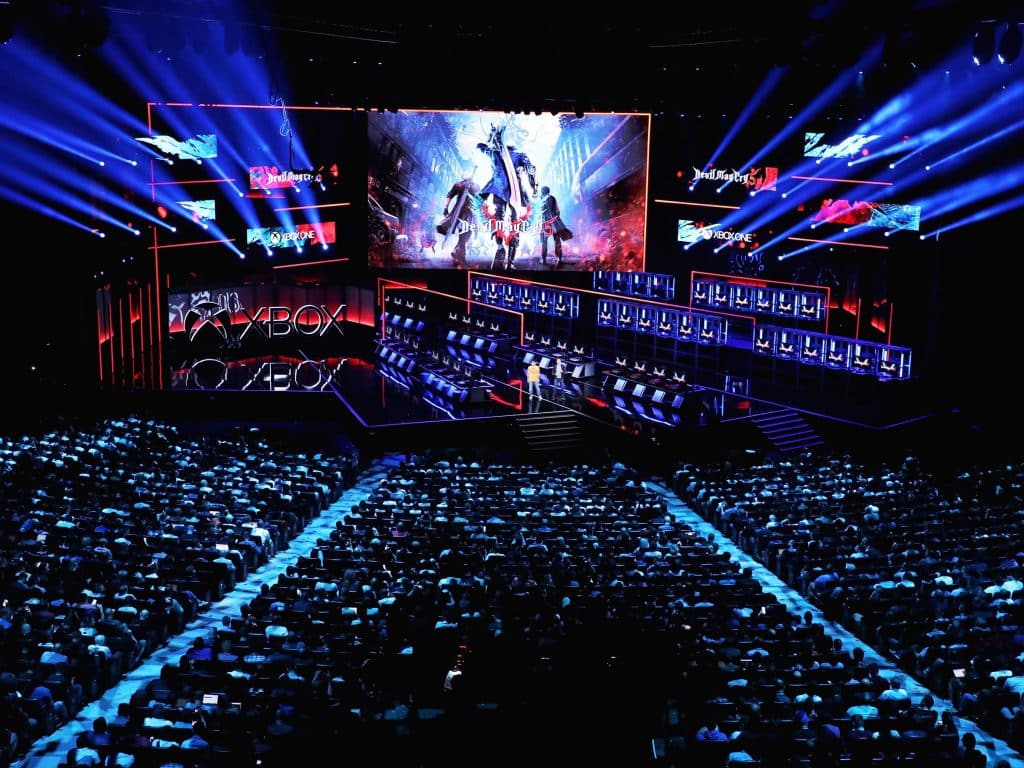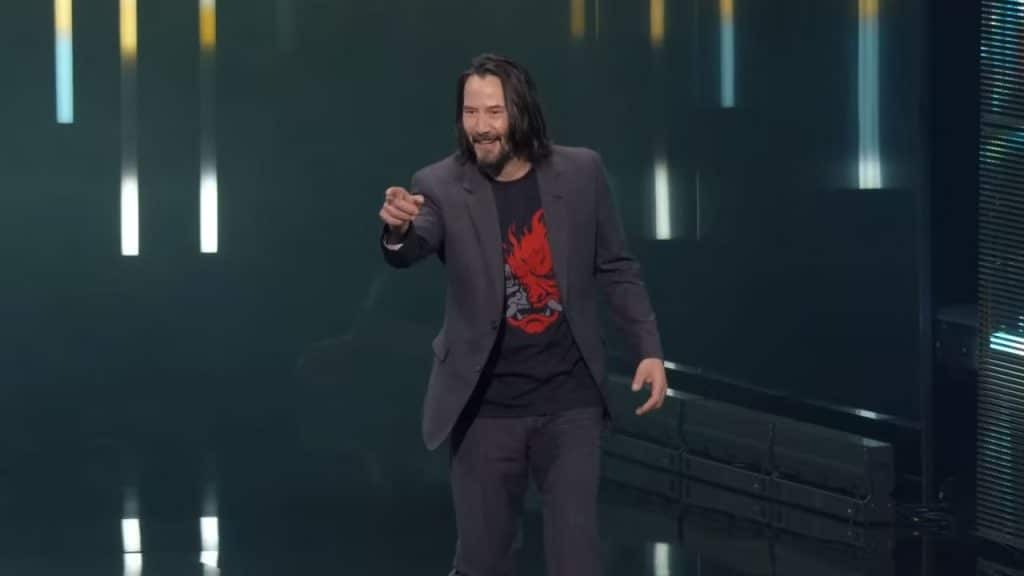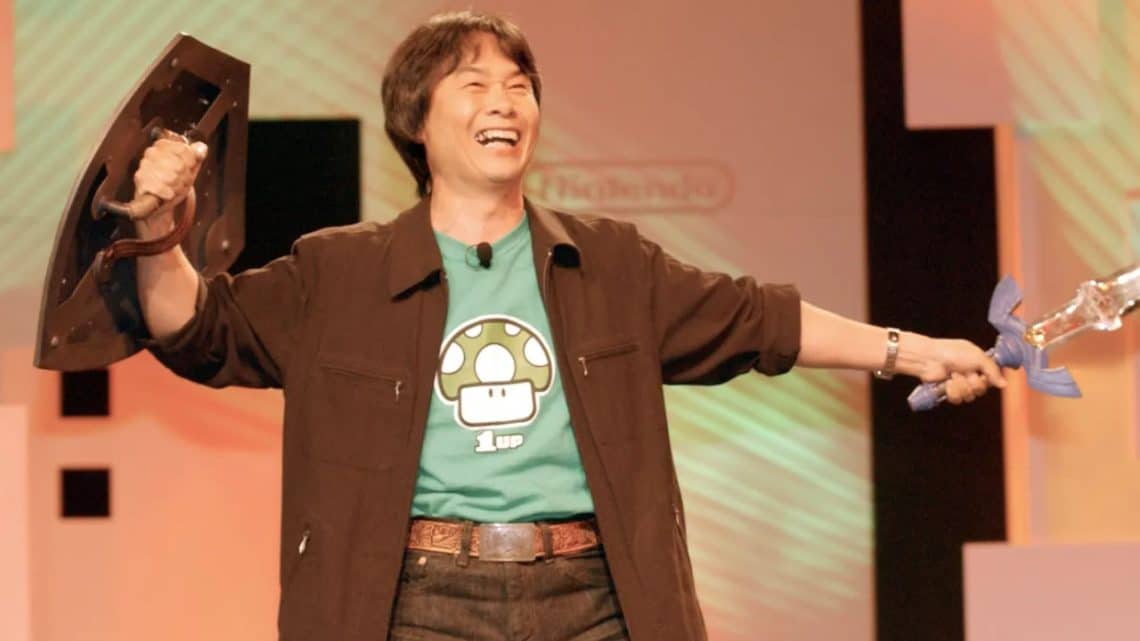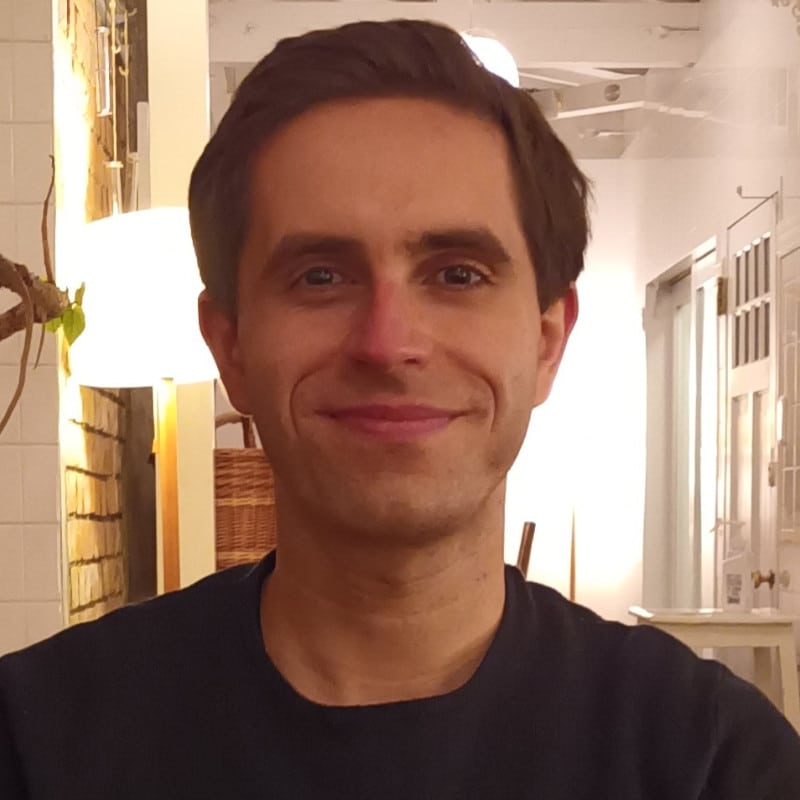On December 12, the Entertainment Software Association pronounced E3 officially dead. The demise of E3 has been a long time coming due to rising costs, COVID-19, the digitalization of direct-to-consumer marketing, longer game development cycles, and other causes. Still, that doesn’t make the news any less sad for those of us who considered E3 to be Christmas in June.
Direct-to-consumer marketing like Nintendo Direct and PlayStation’s State of Play are now the future forms of engaging with the gaming community. The Game Awards is also attempting to provide a hybrid format of awards alongside announcements to appeal to the players. So far, however, none measure up to the palpable hype, humanity, and sense of community that surrounded E3.
Here are a few — nostalgic — reasons why I will miss it.

Hype
There was something special about looking forward to E3 every summer in your favorite chair with your tasty snacks, hoping to be surprised by the Big Three (Sony, Nintendo, Microsoft) and other publishers and developers. You knew something was coming because rumors started to fly around shortly before the conference.
The hype building was unreal. That’s because the Big Three had to show up with something to justify their presence and engagement with the community. It also had to entice you with new titles for you to buy! In this sense, it also responsibilized the developers to push for spectacular reveals and demos.
I am sure you also remember the hype surrounding the reveals of Final Fantasy 7 Remake during E3 2015, Uncharted 2 during E3 2009, The Legend of Zelda: Twilight Princess during E3 2004, and so on. I still remember to this day, the crowds roaring with excitement at these surprise announcements.
The Big Three knew exactly how to play up this hype and get the audience going. Most of the time, they would save the best for last and build up to the big reveal with memorable performances, including a live orchestra (God of War during E3 2016), a masterful flute performance (Ghost of Tsushima during E3 2018), and even a tattoo announcement (that’s right, Peter Moore revealed Grand Theft Auto IV for the Xbox 360 by rolling his sleeve during E3 2006).
A stream of announcements poured in from others as well since the biggest developers also showed up to the party. The likes of Bethesda, Ubisoft, and Square Enix treated us with many reveals over just several days. It was overwhelming, but in the best possible ways! While not all announcements there were might be up to your taste, there was no denying that there was always something to look forward to. For that excitement, I am most thankful.

Humanity
The E3 conferences were mostly live, taking place on a large stage in front of a packed audience present at the venue (and an audience at home watching online). This was a great chance for the Big Three to put their best foot, and presenters, forward.
Importantly, this was its opportunity to show a bit of humanity, to highlight that behind these multi-billion dollar corporations laid a normal and passionate beating heart that wanted to connect with the community.
There was room for fun, for surprises, and ultimately for amusing failures. That’s because passionate presenters like Shigeru Miyamoto and Regie Fils-Aimé brought out the fun and self-deprecating humor. Nintendo skilfully utilized E3 to construct its fun identity through its engaging presentations.
This is something recent Nintendo Directs have struggled with as overly-hyped anonymous voice-overs have taken over. To me, this makes Nintendo feel more disconnected from that human element, which made its E3 conferences so charming.
Sony tried this fun approach for a while (remember Kevin Butler?) but ultimately resorted to letting spectacle and surprises do the talking. Microsoft went with a more formal suit-attire approach informed by its Xbox head at the time, Don Mattrick, during the infamous Xbox One 2013 E3.
It was ultimately great fun to see presenters enjoy themselves on the stage, get excited, fail, struggle, and simply be… human… just like the rest of us.

Community
E3 rattled and brought the gaming community together like no other event. “Who won E3?” was the most common post-show question. Fans passionately debated, the press organized post-event shows to discuss the reveals and the big winner, and forums exploded… it felt very much like the gaming world was having its shining moment.
Other big non-gaming publications reported the news. Gaming was being seen and acknowledged on a worldwide scale. And E3 was at the center of this recognition and legitimacy. That’s because major events like E3 made gaming look accessible to all.
This moment in the limelight proved that no matter what background, religion, politics, or orientation you had, you were most welcome to join, connect, and participate in this community. Gaming and passion ultimately bring us together. This is something all future game events should do best to remember.

What’s next?
Change is difficult. I know many are saddened by E3’s demise. Other events like The Game Awards are still figuring out how best to approach community engagement. It is likely we may not see an event like E3 anytime soon (or ever). Rather than focus on its challenges, I will look back at E3 with love and nostalgia for all the incredible moments it offered us!
In any case, the gaming landscape has been constantly changing. I don’t know what the future brings — no one does. Whatever may come next, I have faith in the gaming community to keep the passion, humanity, and inclusivity alive… and I’ll be here to cheer it on.









